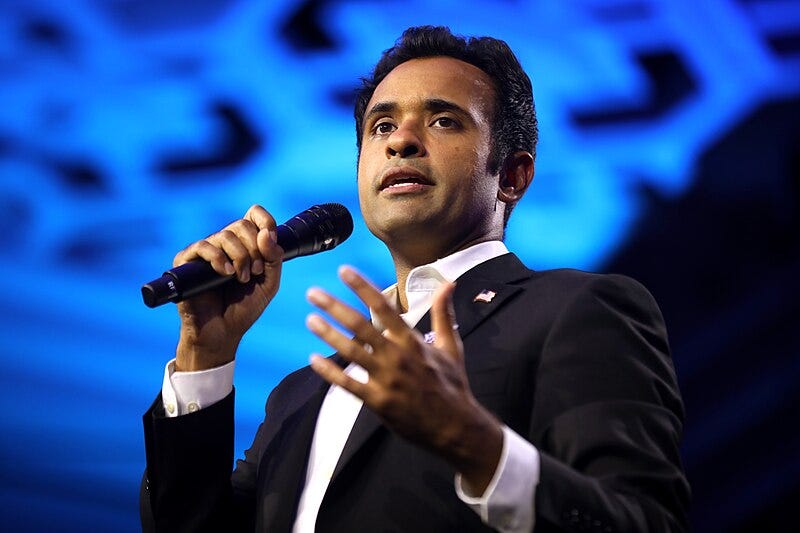Ramaswamy the "George Washington America First Conservative"
A quick take on a presidential candidate's, unfortunately typical, misunderstanding of Washington's brand of isolationism.

A lot of people misunderstand George Washington's flavor of isolationism. This was on full display yesterday when presidential candidate Vivek Ramaswamy called himself a “George Washington America First conservative” and asserted that it is inherently in America’s national interest to avoid all “foreign entanglements.”
The issue is that Washington’s isolationist position wasn’t necessarily that we should avoid all foreign entanglements. It was more an assertion of the idea that the American Republic shouldn’t involve itself in the wars of conquest that European monarchs embarked upon at the time for their own enrichment and power. A free republic had no stake in wars of conquest or in religiously motivated contests of arms between militant Protestants and Catholics.
The world of Washington was a world where America was the only large republic on the face of the earth, and we had little self-interest in being involved in the machinations and plans of despotic kings. But we no longer live in that world. We live in a world with allies, with democratic and free countries that look to us for leadership and for us to hold to our foreign commitments and interests.
Of course, it's difficult to determine how people of other times would respond or think to circumstances so different from theirs, but is there anything Washington said or did to suggest that if the makeup of world powers and their forms of government were dramatically different that he would hold to the isolationist view he had under his circumstances?
I mean, La Fayette was like a son to Washington. If La Fayette had succeeded in crafting a bloodless path to a constitutional monarchy in France and forged an alliance between republics across the sea in its wake, doesn't it seem likely that Washington would stay committed to such an alliance and send troops to fight alongside the French if Russia or a Germanic prince invaded a free and truly republican France? It seems to me that Washington wouldn't flinch to commit support in defense of an alliance of two free peoples against despotic conquest, just as we would expect France to honor such an alliance and send troops to the New World in defense of the American republic (as happened under the alliance established with the King of France, a key development in winning the Revolutionary War).
I also can’t help but note that much of the portion of Washington's farewell address that talks about isolationism was penned with the assistance of Alexander Hamilton, who was duplicitous in scuttling diplomatic relations with France through the use of isolationist rhetoric in hopes of building an alliance with Britain. Despite this isolationist rhetoric encouraged by Hamilton, it was he who later was key in establishing the first post-Revolution professional army, drove us into a quasi-war with France, and at one point had plans to march upon and invade Florida, which would have led to war with Spain.
Hamilton had no intention of avoiding foreign entanglements. He simply wanted an alliance with Great Britain rather than France. And, if John Adams hadn’t finally put his foot down, Hamilton would have driven us headlong into the great conflicts of the time between Protestant monarchs and Catholic monarchs.
Washington’s isolationism was a well-intended effort to avoid entanglements in the contests of empires, not a declaration that foreign policy must be exclusively isolationist at all times and in all conditions. And the Federalists were never as truly isolationist as is assumed by reading Washington’s words. The Hamiltonians used isolationist arguments to scuttle the alliance and relationship with France and had more than a few designs to fully embrace a co-partnership in the broader anglosphere, even to the point of engaging in wars of conquest ourselves.
-Justin
The Daily Saucer is our place for freelance contributors and editorial staff to offer short takes on the news cycle, quick observations on the issues, and brief thoughts on broader topics. The views offered in this space reflect only the personal views of the authors.
The Freemen News-Letter is an online media publication effort of the Freemen Foundation, a non-profit effort to conserve and renew American constitutionalism. Please consider a donation to our efforts.


